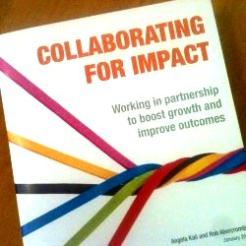Charities that enter into partnerships to bid for public sector contracts should decide at the outset who will play the ‘prime contractor’ role, because statutory clients like to have one organisation as the accountable entity, charities were advised this morning.
Representatives from more than 50 charities attended the launch of a new report from New Philanthropy Capital and Impetus Trust, which outlines the benefits, opportunities and risks of collaborating with others to tender for contracts.
Collaborating for Impact aims to help charities decide whether a partnership is right for them, and how to prepare for it and ensure its success once a decision is made to proceed.
The four key recommendations from the report are:
- Keep the focus on beneficiaries
- Understand the financial implications
- Understand and demonstrate the impact of the partnership
- Build genuine trust by raising and working through the difficult issues and being prepared to compromise.
At this morning’s launch, Bob Harris, a former Accenture partner and expert in public sector business development, told the audience that prospective partners needed to closely examine the cost of bidding, the arrangements for revenue sharing, and pricing.
He said that essentially, partners need to decide early on who will be the ‘prime contractor’ because “clients like to have an accountable entity with whom to contract”.
“Then you need to be clear about your respective roles in the delivery – who will do what? If that’s not clear it will be hard to work together and even to put a big together.”
Harris also advised charities to price bids adequately, building in not just the direct delivery costs but also a sum to cover corporate overheads such as the finance and IT functions, as well as a margin.
How to build genuine trust
The report warns against avoiding tricky questions. It states: “There is arguably an implicit view held by many that trust is the product of everyone being nice to each other, preserving the warm feelings partners have towards one another in the initial honeymoon phase of the partnership.
“Where this culture persists in a collaboration, difficult discussions and issues are often avoided in the interests of maintaining superficially happy relations. This can be a dangerous way to proceed, and can result in partnership failure that could have been avoided.
“A mature approach to collaboration acknowledges upfront that conflict is inevitable, and agrees on some ground rules about how to deal with it.”
The report also states that in some circumstances it may be legitimate for a charity to pursue a collaboration to win a contract that does little to help it achieve its mission, but generates a surplus of funding, because the surplus can be used to pay for on-mission work.









